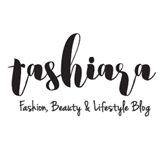Organic vs. vegan beauty products: What’s the difference?

The beauty industry is increasingly embracing sustainable and ethical practices, leading to the rise of organic and vegan beauty products. While both terms are often used interchangeably, they are distinct in their meanings and implications. Here's a detailed comparison to help you understand the differences and make informed choices.
1. Definition
-
Organic Beauty Products:
Organic products are made from natural ingredients grown without the use of synthetic pesticides, herbicides, or genetically modified organisms (GMOs). They focus on sustainability and avoiding harmful chemicals. Certification by bodies like USDA or COSMOS ensures authenticity. -
Vegan Beauty Products:
Vegan products are free from any animal-derived ingredients such as beeswax, lanolin, or collagen. They are often associated with cruelty-free practices, although the terms vegan and cruelty-free are not synonymous.
2. Key Ingredients
-
Organic Products:
Contains plant-based ingredients like aloe vera, essential oils, and botanical extracts sourced from organic farming. However, they may include animal-derived ingredients like honey or milk if organically sourced. -
Vegan Products:
Exclude all animal-derived ingredients but can include synthetic compounds or non-organic plant-based ingredients. For example, vegan products may use synthetic alternatives such as beeswax or collagen.
3. Certification Standards
| Aspect | Organic Products | Vegan Products |
|---|---|---|
| Certifications | USDA Organic, COSMOS Organic | Certified Vegan, Vegan Society |
| Focus | Avoids synthetic chemicals and GMOs | Excludes all animal-derived ingredients |
| Cruelty-Free? | Not necessarily | Often but not always cruelty-free |
4. Benefits
-
Organic Products:
- Gentle on the skin due to the absence of harsh chemicals.
- Rich in nutrients from natural plant-based sources.
- Environmentally friendly, promoting sustainable agriculture.
-
Vegan Products:
- Ethical and aligned with animal welfare principles.
- Suitable for individuals with allergies to animal-derived ingredients.
- Often lighter formulations, are ideal for sensitive skin.
5. Who Should Use Them?
-
Organic Products:
Best for those prioritising natural, chemical-free skincare with minimal environmental impact. They are ideal for sensitive skin or individuals concerned about synthetic additives. -
Vegan Products:
Perfect for those committed to cruelty-free, animal-free choices. They are suitable for vegans and people with dietary or ethical preferences against animal-derived ingredients.
6. Comparative Summary
| Factor | Organic Beauty Products | Vegan Beauty Products |
|---|---|---|
| Primary Focus | Natural, chemical-free ingredients | Excludes animal-derived ingredients |
| Ethical Concerns | Focus on sustainability | Focus on animal welfare |
| Certifications | Organic standards | Vegan certification |
| Suitability | For sensitive skin, eco-conscious users | For vegans, cruelty-free advocates |
7. Can Products Be Both Organic and Vegan?
Yes, products can be both organic and vegan if they meet the standards of both categories. For example, a cream made from organically grown plants with no animal-derived ingredients would qualify as both. However, not all vegan products are organic, and not all organic products are vegan.
8. Conclusion: Which Should You Choose?
The choice between organic and vegan beauty products depends on your priorities:
- If you value natural, chemical-free formulations and environmental sustainability, opt for organic products.
- If ethical considerations and animal welfare are your focus, choose vegan products.
For those looking for a balance, explore products that are both organic and vegan, ensuring they meet your ethical and skincare needs.











